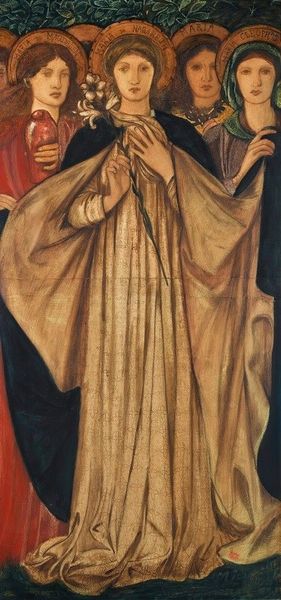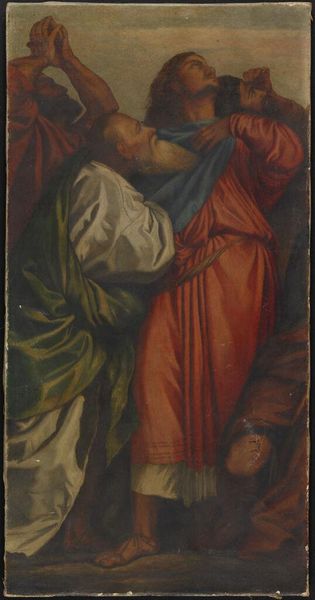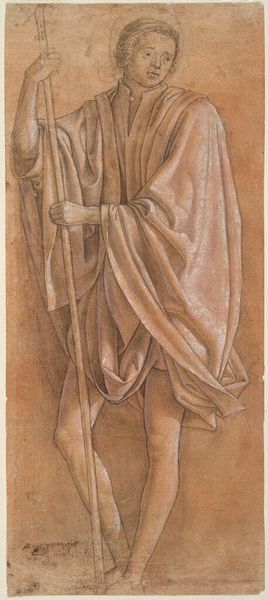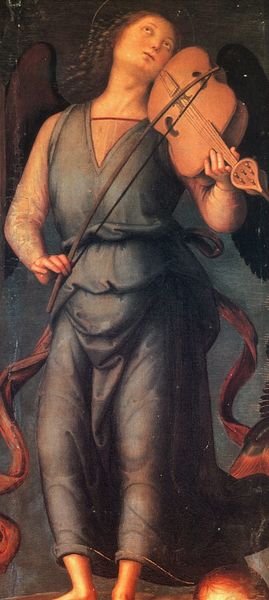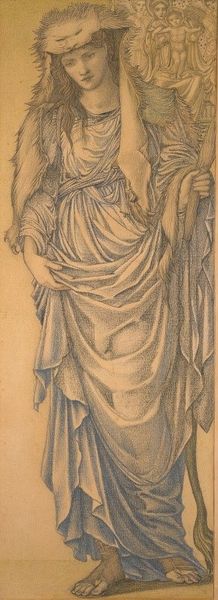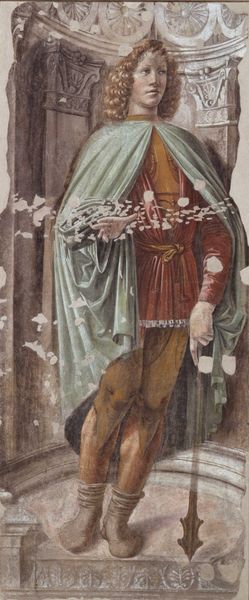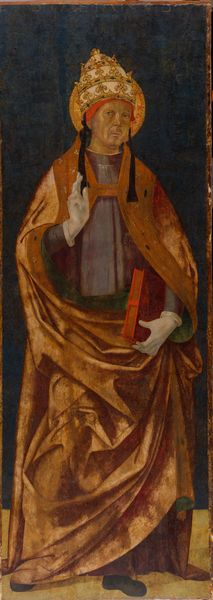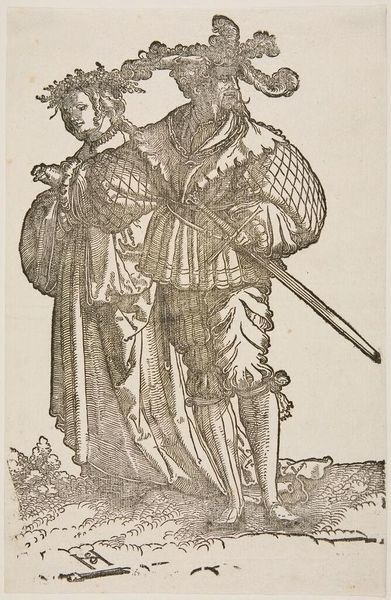
painting, oil-paint
#
portrait
#
painting
#
oil-paint
#
figuration
#
oil painting
#
portrait reference
#
history-painting
#
italian-renaissance
Copyright: Public Domain: Artvee
Botticelli rendered this panel of Judith with the Head of Holofernes in the late 15th century, using tempera on wood, a common support at the time. The painting process itself involved grinding dry pigments into egg yolk, applying thin layers to build up color and form, then varnishing. Tempera demands precision and control, as it dries quickly, but it yields a luminous quality; look closely at the way Botticelli has built up layers of ochre and red to create Judith's dress. This choice of medium, its inherent properties, and the painting techniques, speak to the cultural context of Renaissance Florence, and the role of the artist as a skilled craftsman. Botticelli's attention to detail elevates the status of painting, distinguishing it from mere craft, whilst acknowledging its deep roots in material practice and workshops. Approaching the painting with an understanding of these processes allows us to delve deeper into the values, beliefs, and social structures that shaped its creation.
Comments
No comments
Be the first to comment and join the conversation on the ultimate creative platform.

